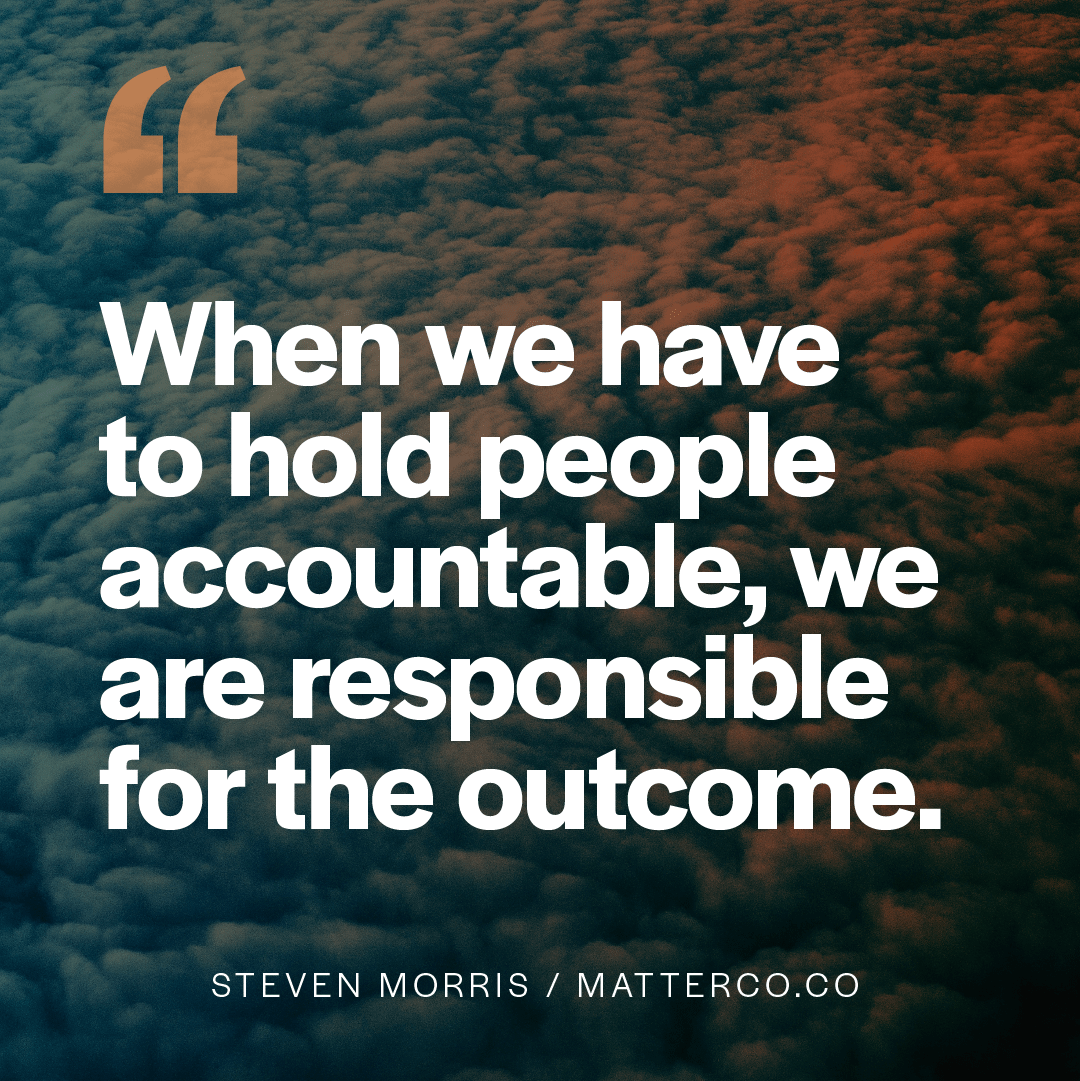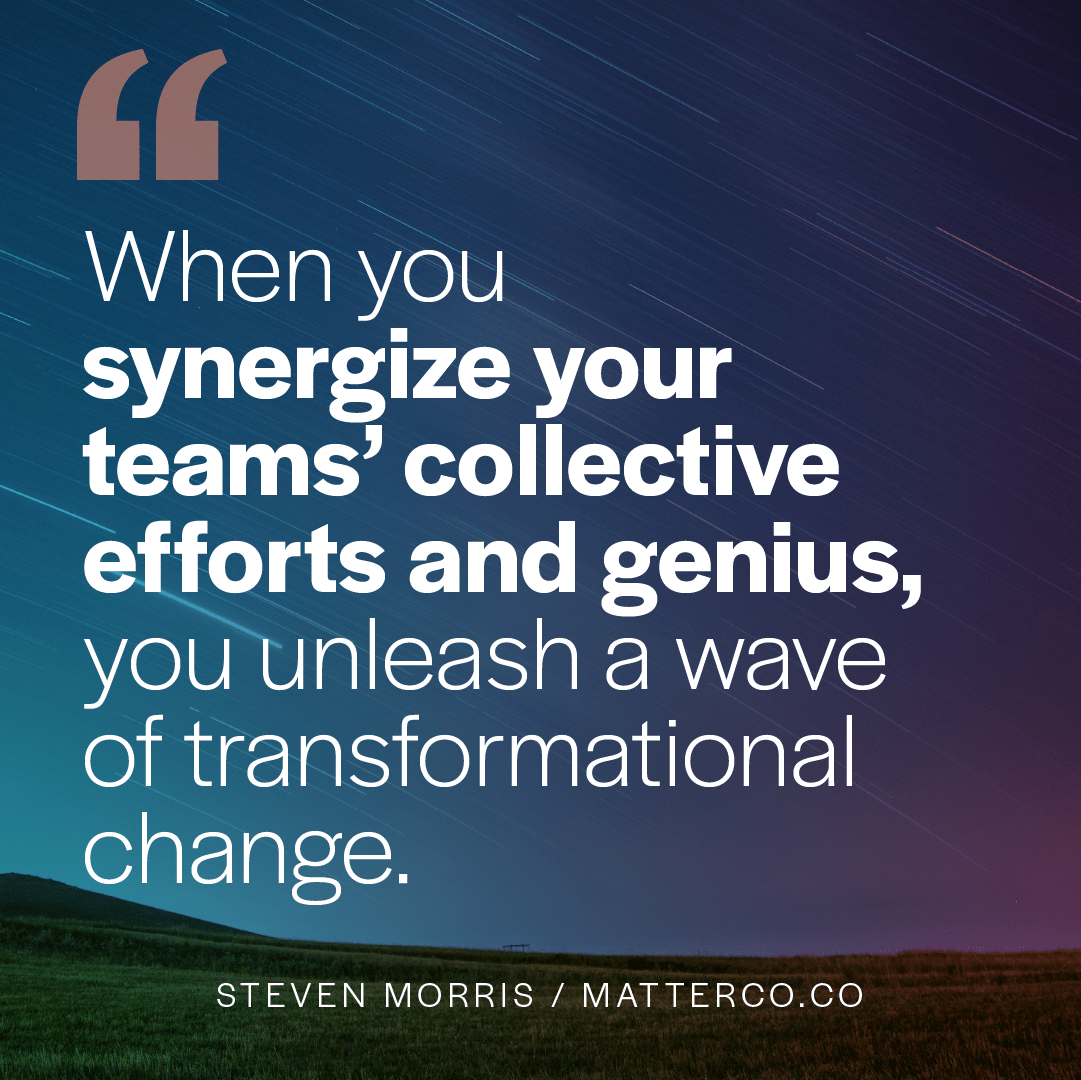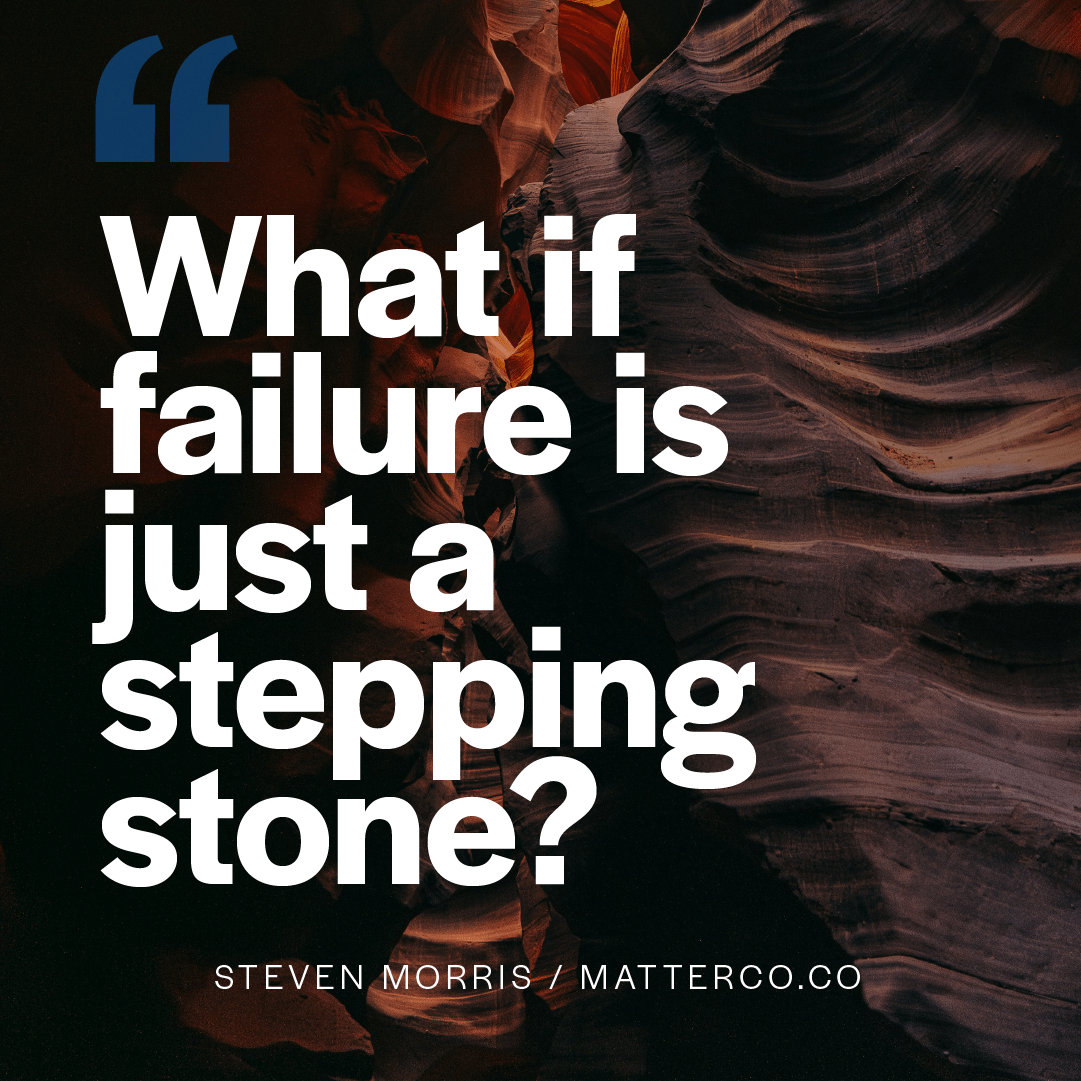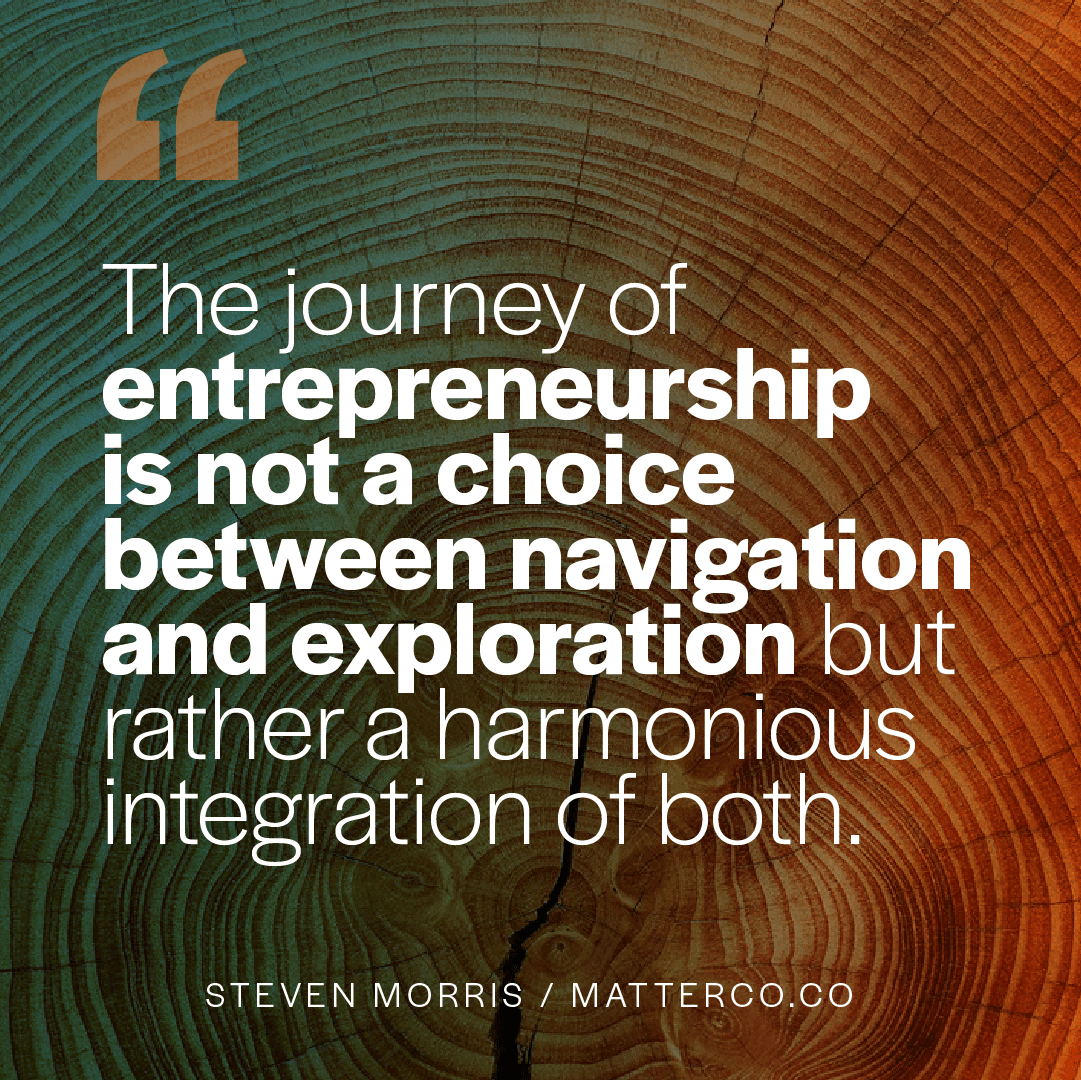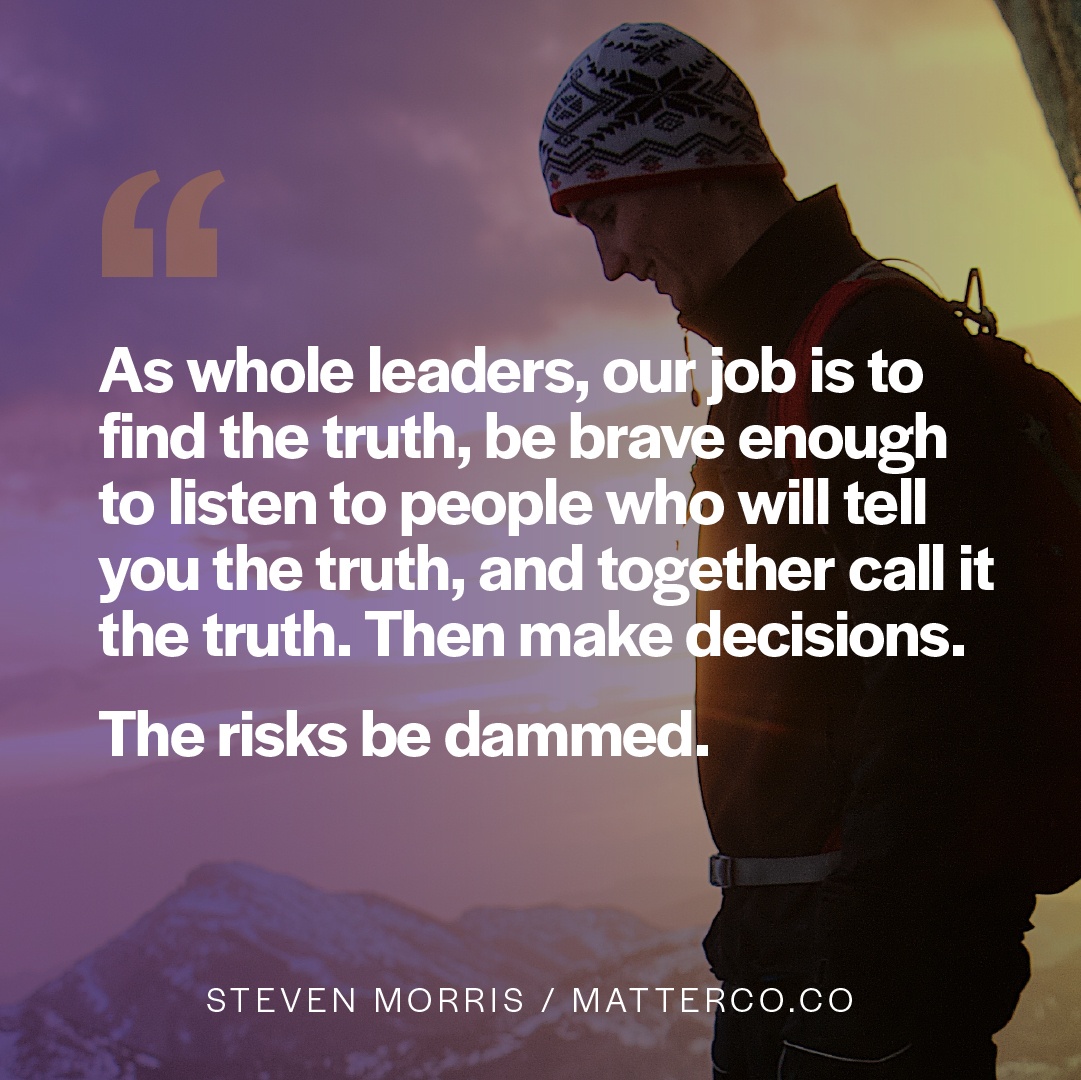
3 Roles of Whole-Leaders
The more I’m faced with helping leaders guide their businesses, the more I recognize that good or great leadership boils down to a few essentially human things. Allow me to explain.
A Carl Jung quote that I refer to frequently and use as a guide for my own life is, “until we make the unconscious conscious, it will direct your life and you will call it fate.”
A significant part of my work is to help leaders, managers, teams, and organizations get to the bottom of their unconscious and see the truth so they can consciously direct their own fate. I call this brand-culture evolution work.
Often leaders sit on the peak of the pyramid and pretend we know. Outwardly, we have it all together. Our colleagues outwardly or silently, or through back-channel gossip, critique our inability to listen to the truth, share power, authority, and delegate. When things go wrong, we inwardly rejoice that a poor decision doesn’t fall on us. It’s a shell game of responsibility.
Inwardly, many leaders second- or third-guess ourselves that we’re living up to the hype around and about us. We live with the fear that at any point we’ll be unmasked for the imposter we are.
The shame of “being discovered” and “not knowing” keeps us from remembering that we’re human: A perfectly imperfect being in the making. This shame keeps us from being vulnerable to learn from others, building consensus amongst teams, and aligning with well-meaning experts to guide us.
Command and Control is Dead.
The pyramid of command and control has always been a short-term power game. It doesn’t serve anyone except those who have and want to keep the power. And it’s certainly not for the greater good. Unfortunately, our society breeds this power play. We were raised on a constant diet of giving away of our power. Think of the symbolic positions that we’re told have power: A doctor in a white lab coat, a priest in a gown or black-suited with white collar, a police officer, a CEO in a power suit.
We buy into the command and control because it helps us to quiet the undermining voices of our perceived inadequacies. But, it’s only a façade. The voices of self-doubt know better. They know the truth that we’re pretending to always have it together, always have the answers, always be in control.
The work of Brené Brown has brought light to these shadows. Her work and writing show us that the intersections of shame and vulnerability, when fused with the natural elements of risk-taking in business, are not at odds. “There is no real courage without vulnerability,” Brené reminds us.
Creating a culture of belonging is among the fiercest of public intimacies because it requires risk — of being seen as imperfect and making imperfect decisions — in places where risk-taking is not typically rewarded.
All of this leads to the three primary roles as leaders.
The first role of leaders is to seek the truth.
If you’re successful, it’s surprisingly easy to get caught up in drinking the kool-aid of your own success. We know the sayings “what got you here won’t get you there.” And, there’s nothing like success to inhibit your future success. For everything we think we know, there are a million things we don’t.
Deception is dangerous. Deception from others can give us bad information and lead us to confusion. But self-deception may be more dangerous because we can fool ourselves more easily than others. You can thank your unconscious for that truth. Leaders need to seek the truth, even if that truth sits in the shadows of shame.
The second role of leaders is to invest in your people.
By investing in your people you surround yourself with an environment of truth seeking, truth saying, collaboration, and alignment in the cause at hand (aka the higher purpose of your business).
By investing in your people in all the ways that you can you set a course to make their lives better and your business better. This includes your employees, your partners, your customers, and any stakeholder in the business. Invest in them, care for them, and listen to them, and they’ll tell the truth. When they tell the truth, you better understand the reality around you, and then you can make better decisions.
The third role of leaders is to make decisions.
Not to be perfect. Not to have all the answers. Not to get it right every time. Not to be seen as perfect. Here’s the truth: we won’t make every decision perfectly. But, by seeking the truth and aligning ourselves with smart, trustable, caring people, we can make better decisions and together respond to how those decisions play out.
Wholeness in leadership is an evolved state where we allow, even invite, the quality of our aliveness to come forward into the quality of our leadership humanity.
As whole leaders, our job is to find the truth, be brave enough to listen to people who will tell you the truth, and together call it the truth. Then make decisions, live with them to make better decisions tomorrow. The risks be dammed.
If you want a more trusting team, a culture of belonging or a magnetic brand that attracts more of the right customers, I can help. If you'd like to explore if working together makes sense, drop me a line.




